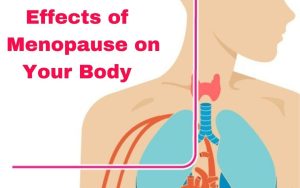
Polycystic Ovary Syndrome (PCOS) is a common hormonal disorder that affects women of reproductive age. It is characterized by irregular periods, high levels of androgens (male hormones), and cysts on the ovaries. While there is no cure for PCOS, there are ways to manage the symptoms and improve overall quality of life. In this article, we will discuss the role of diet, exercise, and treatments in managing PCOS.
Diet
Diet plays a crucial role in managing PCOS symptoms. A diet that is rich in whole foods, such as fruits, vegetables, whole grains, and lean protein, can help regulate blood sugar levels and reduce insulin resistance. This is important because insulin resistance is a common feature of PCOS and can lead to weight gain and other metabolic issues.
In addition to eating a healthy diet, women with PCOS should pay attention to their carbohydrate intake. Foods that are high in refined carbohydrates, such as white bread, pasta, and sugary snacks, can cause blood sugar levels to spike, exacerbating insulin resistance. Instead, focus on complex carbohydrates, such as whole grains and legumes, which are higher in fiber and have a less pronounced effect on blood sugar.
Another important aspect of diet management for PCOS is maintaining a healthy weight. Women who are overweight or obese are more likely to experience severe symptoms of PCOS, such as irregular periods and infertility. By following a balanced diet and engaging in regular physical activity, women with PCOS can achieve a healthy weight and improve their overall well-being.
Exercise
Regular exercise is another important component of PCOS management. Physical activity can help to improve insulin sensitivity, lower blood sugar levels, and aid in weight loss. In addition, exercise has been shown to reduce stress and anxiety, which are common symptoms of PCOS.
Women with PCOS should aim to engage in a combination of aerobic and strength-training exercises. Aerobic exercise, such as walking, running, or cycling, can help to burn calories and improve cardiovascular health. Strength-training exercises, such as weightlifting or bodyweight exercises, can help to build muscle mass and increase metabolism.
It is recommended that women with PCOS aim for at least 150 minutes of moderate-intensity exercise per week. This can be broken down into 30-minute sessions, five days a week. Finding a form of exercise that you enjoy can make it easier to stick to a regular routine and reap the benefits of physical activity.
Treatments
While lifestyle changes, such as diet and exercise, are important in managing PCOS symptoms, some women may require additional treatments to help regulate their hormones and improve fertility. Medications, such as birth control pills, can help to regulate menstrual cycles and reduce androgen levels. Metformin, a medication commonly used to treat type 2 diabetes, can also be prescribed to help manage insulin resistance in women with PCOS.
In some cases, women with PCOS may also benefit from fertility treatments, such as ovulation induction or in vitro fertilization (IVF). These treatments can help women with PCOS conceive and achieve a successful pregnancy.
It is important for women with PCOS to work closely with their healthcare provider to develop a comprehensive treatment plan that addresses their individual needs and concerns. By taking a proactive approach to managing PCOS, women can improve their symptoms and enhance their overall quality of life.
Conclusion
PCOS is a complex hormonal disorder that can have a significant impact on a woman’s health and well-being. However, with the right combination of diet, exercise, and treatments, women with PCOS can effectively manage their symptoms and improve their quality of life. By making healthy lifestyle choices and working closely with their healthcare provider, women with PCOS can take control of their condition and thrive.

